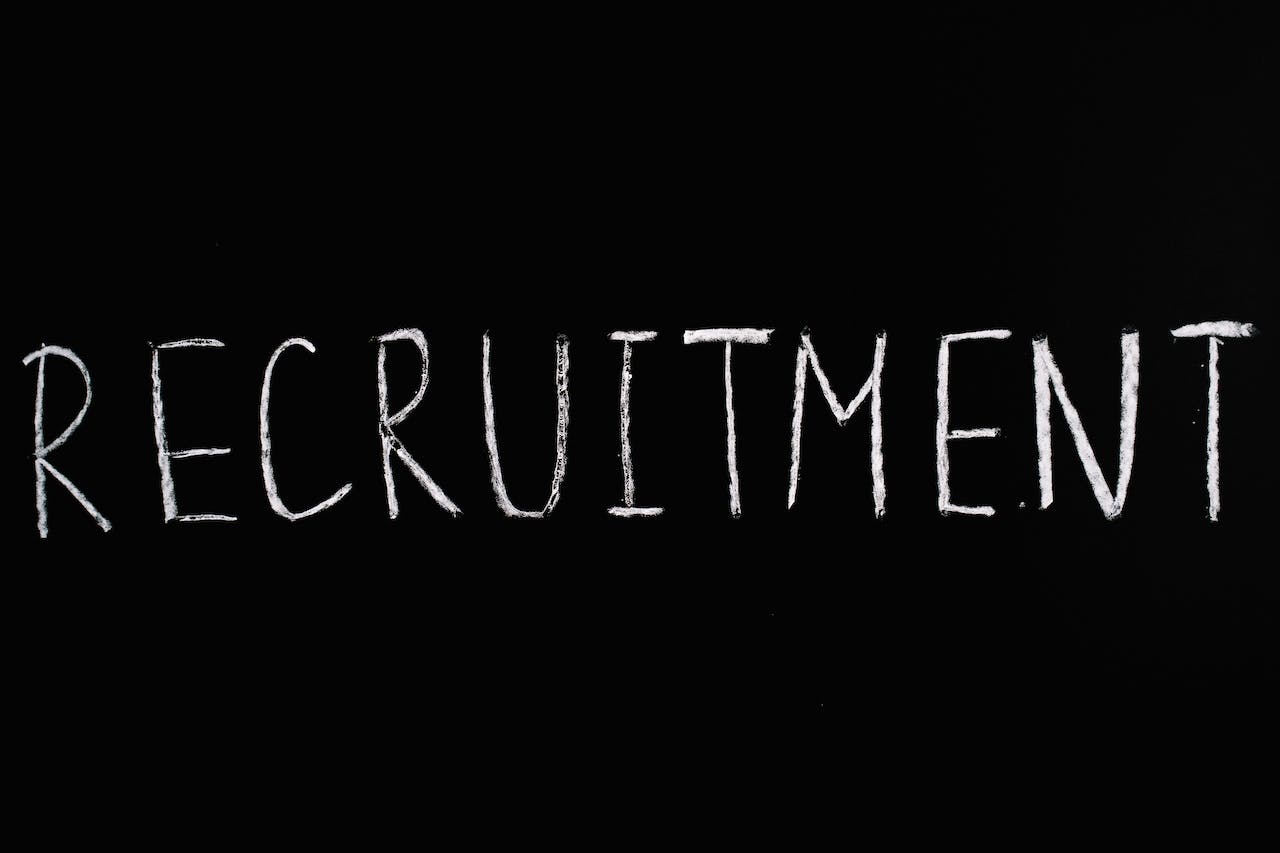
As you step into 2024, the role of Human Resources (HR) is more critical than ever in shaping organizational success. The dynamic landscape of the workplace continues to evolve, presenting HR professionals with unprecedented challenges.
From technological advancements to shifting workforce demographics, HR leaders must be prepared to navigate a myriad of complexities.
In this article, you will delve into what are the biggest challenges in HR for 2024. And explore how these challenges are shaping the future of work.
What Are Recruitment Challenges?
As you are aware, hiring the proper person for a position and avoiding a poor hire require a lot of work and are not simple tasks. During the recruiting process, a recruitment team encounters several difficulties. In addition, the recruiter had to fill the available job as soon as possible to uphold employer branding standards and be a good recruiter.
Long-term unfilled jobs hurt the company's reputation. Today, talent acquisition is a top concern for all businesses. Recruiting firms, regardless of size, want to create a valuable talent pool that will serve them well in the future. Is it simpler stated than done, though?
The hiring process is the most intricate procedure from the inside out, as the recruiter must advance through each level alongside the prospects. Recruitment difficulties are the different issues that they face throughout these stages.
These are some recruitment-related obstacles that you should be aware of and prepared to handle in advance of beginning a recruiting process.
Anticipated HR Challenges In 2024
The area of human resources (HR) is constantly changing, and successful organizations and efficient management depend on keeping up with the latest developments.
Embracing Artificial Intelligence And Automation
AI and automation are transforming HR in several ways, including performance management, employee engagement, onboarding, and recruiting.
HR departments will use chatbots and AI-powered solutions more often in 2024 to improve data analytics capabilities, expedite administrative chores, and provide individualized employee experiences.
HR personnel will have more time to concentrate on strategic goals and employee development by automating monotonous chores.
Focus On Employee Wellbeing
Organizations already place a high premium on employee well-being, and in 2024, this trend will only gain more significance.
To create and carry out comprehensive well-being programs that cover mental, emotional, and physical health, HR departments will be essential.
Organizations will make an effort to foster a happy and encouraging work environment, from work-life balance regulations and wellness programs to flexible work schedules and mental health assistance.
The Emergence Of The "Hidden Workforce"
2024 will be known as the year of the "hidden workforce" since so many firms are still having trouble finding qualified employees. This is a reference to the 27 million Americans—caretakers, retirees, and neurodivergent professionals, among others—who are often passed over or underused as a result of discriminatory employment practices.
By 2024, more workers should be using technology and recruiting techniques that enable them to go further into this uncharted market. With the use of technology, it is now simpler to access the hidden workforce and concurrently alter processes to ensure that diverse recruits get the resources they need to succeed.
Prioritizing Data Privacy Of Employees
A noteworthy development in HR will be the increased emphasis on employee data protection. The need to secure employee data is growing as more and more work is done remotely and digitally. You anticipate that HR departments will implement cutting-edge data security procedures and privacy-focused guidelines.
For example, businesses may encrypt all internal communications end-to-end and spend money educating employees to identify and reduce data risks. In addition to preventing data breaches, this growing emphasis on data privacy also tells staff members that their privacy is valued and safeguarded, which strengthens their loyalty to the organization.
Connecting To Culture
According to the poll, 47% of HR executives are still determining how to drive change to reach the desired culture, and 4 out of 10 (41%) HR leaders believe hybrid work compromises workers' relationship to culture.
Because taking care of workers leads to the development of leaders and managers, organizational culture and team welfare should be the top priorities for HR professionals.
Managing A Multigenerational Workforce
Workplaces in 2024 will be made up of a variety of generations, each with its own communication preferences and work styles, which might cause miscommunication and conflict. Accept the variety of generations as a strength.
Establish mentoring initiatives that promote knowledge sharing throughout age groups. Encourage mutual respect and open lines of communication to aid in bridging the generational divide. In summary, organizations and HR departments will have both possibilities and problems in 2024.
Organizations may position themselves for success in a businessenvironment that is changing quickly by recognizing these possible obstacles and proactively putting strategic solutions in place. To thrive in the next year, keep in mind that adaptation, flexibility, and a people-centric approach will be essential.
The Point Of No Return For DEIB
The year 2024 is designated as the DEIB (diversity, equality, inclusion, and belonging) reinvention year. We've come this far thanks to three significant changes. First, there is the Supreme Court judgment that invalidated affirmative action or choices made based on race in college admissions. Republican attorney generals forewarned Fortune 100 CEOs that private corporations would also be subject to this verdict.
Dissatisfaction with DEIB departments is evident at the same time. Employers such as Amazon, Twitter, and Lyft have let go of DEI personnel, and in 2022, there were 19% fewer DEI job postings than the year before. By the end of 2022, the attrition rate for DEIB-related jobs was 33%, while the rate for non-DEIB-related functions was 21%, according to Revelio Labs' analysis of the layoff notifications of over 600 organizations.
Lastly, diversity officers are either self-conscious or need to recognize the significance of their job. The former Vice President of Impact and Diversity at the Academy alluded to some of the challenges faced by Black executives in the wake of the departure of diversity leaders from Hollywood.
From Silos To Solutions
Business models have changed throughout time to become more digital and flexible in response to shifting customer demands. Because of this, the popular Ulrich operating model's functional silos and siloed structure have been questioned about its capacity to provide integrated and cross-functional business solutions.
Have faith that the Ulrich model will eventually give way to a new HR operating model that better aligns with the business objectives of the company. Beginning in 2024, when discrete HR services start to combine into comprehensive solutions, this development will take place.
HR Leans In
Throughout its existence, the HR function has undergone many transformations, including transitions from human resources to human capital, strategic partners, people and culture, and, most recently, employee experience. To rebrand and reposition HR to support and propel business developments, a fundamental transformation that goes beyond a simple name change is required.
In the past, HR has yet to prepare itself to contribute as much as it might have. It has often neglected to embrace digital technology, develop skills, and have faith in its potential to produce value, which has left the department overburdened in terms of transactions and operations. Attitudes toward HR mirror this.
The majority of C-suite executives—63%—and HR leaders—73% and 76%, respectively—think that their HR team's primary emphasis is on procedures. It's also one of the reasons why HR departments have been disproportionately affected by layoffs recently, and many HR professionals are not proud of the contribution their industry contributes to the bottom line. HR will reverse this in 2024, reclaim its own identity, and embrace the strategic dialogue.
Adapting To Regulatory Changes
The regulatory landscape governing employment is subject to constant change, requiring HR professionals to stay vigilant and adapt swiftly.
New labor laws, data protection regulations, and evolving workplace safety standards demand proactive compliance measures. Failure to stay abreast of these changes can lead to legal ramifications and damage an organization's reputation.
Moreover, the global nature of many businesses adds an extra layer of complexity as HR departments navigate diverse legal frameworks across different regions. Implementing robust compliance strategies and fostering a culture of ethical behavior are essential components of meeting this challenge.
Leadership Development And Succession Planning
As the workforce evolves, so too must leadership development strategies. HR faces the challenge of identifying and nurturing the next generation of leaders while ensuring a diverse leadership pipeline.
Succession planning is critical for organizational continuity, and HR professionals must proactively identify and develop high-potential employees.
Moreover, the leadership skills required in the digital age are different from those of the past. HR must foster continuous learning and adaptability among leaders to navigate the complexities of an ever-changing business landscape.
Agile HR Practices
In the face of constant change, HR departments must adopt agile practices to remain responsive and adaptable. Traditional HR structures and processes may prove inadequate in the fast-paced, dynamic environment of 2024. Agile HR involves the flexibility to pivot quickly, iterate on processes, and respond effectively to emerging challenges and opportunities.
Implementing agile methodologies requires a cultural shift within HR teams, emphasizing collaboration, experimentation, and continuous improvement. HR professionals must embrace a mindset of agility to navigate uncertainties and drive innovation within their departments.
Global Talent Mobility
As businesses expand globally, the movement of talent across borders becomes a significant challenge for HR. Managing international assignments, addressing immigration regulations, and ensuring a smooth transition for employees relocating to different countries are complex tasks. Additionally, HR must consider cultural differences, language barriers, and the impact of global events on the well-being of expatriate employees.
Global talent mobility also requires HR to develop strategies for building diverse and inclusive teams on a global scale. Navigating the complexities of a multicultural workforce adds a layer of challenge in ensuring harmonious collaboration and communication across borders.
15 Strategies For Navigating The Top Challenges In HR Management
Tackle Mental Health By Starting Conversations
In response to the heightened focus on mental health, HR managers should initiate open conversations about overall employee health. This involves addressing not only physical well-being but also mental and emotional needs. By fostering an environment that encourages dialogue, HR can better understand and support employees' mental health concerns.
Strategize To Get Everyone On The Same Page
HR leaders face the challenge of managing individuals with opposing views. To overcome this, they can proactively seek input from those with differing perspectives before group meetings. This approach helps build consensus by involving everyone in the discussion process, ultimately leading to more collaborative and fruitful outcomes.
Promote The Benefits Of Working On-Site To Increase Productivity
In the context of the ongoing trend toward remote work, HR managers should highlight the positive impact of on-site work. This includes emphasizing opportunities for growth, the company's strong performance, and the potential for internal advancement. By showcasing the benefits of on-site work, HR can attract and retain talent.
Work Within The Limits Of The Current Economic Environment To Avoid Layoffs
Economic challenges may necessitate cost-saving measures like reducing headcount. HR leaders must navigate this by finding ways to maintain or improve service to employees while driving operational efficiencies. Balancing cost-saving measures with employee engagement and retention efforts is crucial during economically challenging times.
Create A Leadership Group To Encourage Hybrid Collaboration
Building a positive, connected, and collaborative culture in a hybrid work environment requires a concerted effort. HR can establish a leadership group focused on creating a positive employee experience. Involving employees through pulse surveys, focus groups, and one-on-one interactions ensures that their voices contribute to the solution. Strategic in-person interactions also play a role in fostering collaboration.
Challenge Public Perception To Define HR's Role
Modern HR roles have evolved beyond traditional administrative functions. HR managers must address outdated perceptions and showcase their holistic, people-focused roles. By changing public perception, HR can enhance its influence within organizations and contribute more effectively to overall employee well-being.
Enable Inclusive Hybrid Meetings To Stay Connected
Navigating a hybrid work environment requires intentional leadership efforts. HR can foster engagement by enabling inclusive hybrid meetings, ensuring fair and equitable participation. Additionally, involving employees in decision-making through surveys, focus groups, and one-on-one interactions helps create a positive and connected work culture.
Minimize Staff Turnover By Treating Employees Well
Staff turnover remains a common challenge, and HR can address this by emphasizing the importance of organizational values. Employees are increasingly drawn to socially conscious organizations that prioritize more than just financial incentives. By promoting a caring and inclusive culture, HR can minimize turnover without solely relying on monetary rewards.
Craft Inclusive Policies To Accommodate Employee Preferences
With diverse employee preferences regarding remote work and flexibility, HR faces the challenge of creating inclusive policies. Recognizing and accommodating these differences is key. HR can strive to create policies that embrace a diverse culture, allowing for flexibility while holding employees accountable. This approach contributes to a more inclusive and adaptable workplace.
Implement A Data-Driven Environment To Support Work-Life Balances
Striking a balance between organizational goals and employee well-being requires data-driven decision-making. HR leaders can prioritize open communication, actively seek feedback from employees, and foster a culture of trust. By aligning individual goals with organizational objectives, HR contributes to creating a harmonious and productive work environment.
Keep The 'Human' In Human Resources To Create Positive Culture
In the increasingly technology-driven HR landscape, maintaining a personal touch is crucial. HR managers should balance administrative tasks with personal interactions. Whether through phone calls or face-to-face meetings, these interactions contribute to creating a positive workplace culture, emphasizing the 'human' aspect of human resources.
Take A People-First Approach By Doing More With Less
Despite budget constraints, HR leaders can advocate for a people-first culture by building a compelling business case. Prioritizing initiatives focused on employee well-being, inclusion, and skills-building can provide a substantial return on investment. This approach demonstrates that people initiatives are essential for driving business results.
Use Empathy To Have Tough Conversations
Managing difficult conversations about employee performance and quality requires empathy, honesty, and clear communication. HR managers can navigate these challenges by understanding employees' perspectives, providing constructive feedback, and fostering an environment of respect. Empathetic communication contributes to improved performance and engagement.
Gain Leadership Buy-In By Highlighting The Payoff
HR initiatives often face challenges in gaining leadership buy-in, especially when they don't directly generate revenue. To tackle this, HR leaders should articulate the impact, payoff, and support structures of their initiatives. Demonstrating how these initiatives contribute to organizational success makes them more palatable and desirable to leadership.
Establish Trust By Increasing Transparency
In today's labor market, trust is crucial. HR can build trust by increasing transparency around salaries, job security, business decisions, and other pertinent information. Striking a balance between providing necessary information and maintaining confidentiality is essential. Establishing transparent communication fosters a trusting relationship between the organization and its employees.
Frequently Asked Questions
What Is The Biggest Challenge Facing HR Today?
While HR deals with a wide range of problems, recruitment, retention & motivation, leadership development, and corporate culture are among the most significant concerns that HR departments face today.
What Are The Employee Experience Trends In 2024?
As hybrid employment becomes more and more common in 2024, it will be a sign of a sustained effort to redefine old ideas of work and provide a flexible framework that can adjust to the changing requirements of a varied and dynamic workforce.
What Is The Biggest Challenge In HRM In The Future?
One of the hardest things for HR managers to do is to attract and keep great people.
What Is The Future Of HR In 2024?
HR leaders' top priorities going forward in 2024 will be to ground themselves in the applicationand benefits of GenAI in HR, prioritize AI-enabled product features (automation, augmentation, or personalization) rather than technology potential, and investigate AI ethics and guidelines to create and utilize AI.
What Is Future HR?
HR specialists will need to better manage the shifting expectations between employers and employees in the future. These new employee needs will also require HR departments to become more humane, employee-centric, and people-focused.
What Are The Threats To The HR Department?
An HR department may face threats from both within and outside the company. Increasingly stringent employment rules and litigious workers are two frequent dangers to HR.
What Is The Talent Management Strategy For 2024?
Trends in talent management indicate that employee-centric strategies are starting to gain traction in 2024. These employee-centric strategies show up in a variety of ways, including good career advancement, work-life balance, mental wellness, employee experience, and employee engagement.
How Can HR Be Future-ready?
On its path to becoming future-ready, HR must remain steadfast in its dedication to innovation and flexibility. HR specialists must embrace technology, foresee trends, and strategically match the objectives of the company with HR procedures.
In Short
This article aims to explain What are the biggest challenges in HR for 2024. The challenges facing HR in 2024 are diverse and multifaceted, reflecting the rapidly evolving nature of work and the global business landscape.
From navigating technological disruptions to addressing the ethical considerations of HR practices, the role of HR professionals is more critical than ever.
By embracing innovation, fostering a culture of agility, and prioritizing the well-being and development of the workforce, HR departments can not only overcome these challenges but also contribute to the long-term success and sustainability of their organizations.




